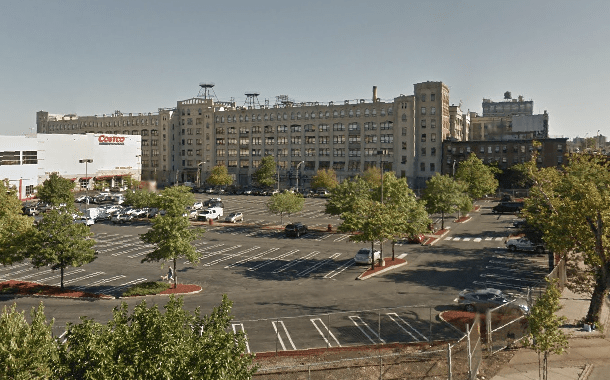When real-estate interests and the city’s ruling class come together to support large land-use actions, like the one at Industry City, the rallying cry is always the same: jobs! This “Growth Machine” coalition of self-appointed civic leaders, business interests, and elite politicians summon imagery of 1970s New York — when mass divestment had the city in constant crisis. The implication is clear: You welcome these developments, or you welcome bankruptcy. They use our communities’ opposition to large-scale, luxury rezonings to slander us as naive “job killers,” unconcerned with economic stability and “progress.”
This fear-mongering is tired and transparent. For New York’s corporate elite to tell us that we don’t care about jobs and housing is insulting. Nothing could be further from the truth. I have been a tenant organizer in my neighborhood of Sunset Park for over a decade. I have been evicted. I have seen my neighbors evicted. As someone who has experienced and fought displacement in my community, I can tell you firsthand just how much my neighbors and I are concerned with economic stability in our city. In fact, we’re concerned that the ruling class has way too much of it. It’s high time they share the stability with the rest of us.
Over the last 30 years, New York has become a more and more unequal place. Billionaires are getting richer, while rates of homelessness and rental debt rocket up. Racial injustice isn’t a byproduct of this inequality — it’s a driving force of it. At every step, communities of color are asked to shoulder the biggest burden, so others can enjoy the biggest return on investment. COVID-19 is no exception. By some estimates, 53 percent of Black New Yorkers are behind on rent, compared with just 6 percent of White households.
The Industry City rezoning, which was approved this week by the City Planning Commission and will move to a full Council vote, is not a solution to this broken system. In fact, it’s the opposite: It’s a stunning example of the economic exploitation and segregation that characterize gentrifying New York. Young, wealthy professionals are able to get $100+ haircuts or $18 lattes, while working-class immigrants of color, just blocks away, are struggling to hang onto their unregulated rental apartments. The developer of Industry City, Jamestown L.P., is the same developer behind Chelsea Market — a boutique mall that set the stage for the gentrification of formerly working-class Chelsea and the displacement of many long-time residents.
This rezoning would double down on the existing pattern of economic development in New York: a pattern in which we use public action to encourage real-estate developers to build luxury playgrounds for the rich, and then just hope that the rest of us can afford to hang on.
Today, the Industry City expansion is moving forward despite the opposition of our community and our Council member, Carlos Menchaca, who has battled with Industry City's developers over the issues of public-transportation access and their demand for more private-car parking. In the name of “jobs,” Council members vying for real-estate support are pledging to vote yes. This is a slap in the face to me and my neighbors, who have been calling for deeper community participation and dialogue about the future of our waterfront for years.
🚨ACTION ALERT🚨
— Marcela Mitaynes 瑪切拉 米坦斯 (@marcelaforny) August 20, 2020
SUNSET PARK REZONING HEADED TO CITY COUNCIL
CALL and EMAIL the City Council TODAY to COMMIT TO VOTE NO to Industry City’s private waterfront plan!
TAKE ACTION HERE 👉🏽 https://t.co/7T4u15hdQq
Please CALL, SHARE, and RT#NoICRezoning #ProtectSunsetPark pic.twitter.com/RNhsGcL9IV
As our city is ravaged by COVID-19, as thousands of tenants rent strike, and as thousands more take to the streets to demand racial justice and the defunding of the NYPD, it’s time to leave our old patterns of land use and real-estate development behind.
Our communities — and our waterfront — deserve better. Rather than transfer the value of our land to the highest bidder, we need to use our land-use process to stop displacement and gentrification; to actively undo the legacy of environmental racism and exclusion in our neighborhoods; and to facilitate a just transition off of fossil fuels and toward resilient communities that discourage private-car ownership and encourage public transportation. We need to socialize land and housing, and to empower the working class to have a say in the future of our city.
The Industry City rezoning doesn’t do that. The City Council must ignore the fear-mongering cries of the “Growth Machine” and vote this project down.
Marcela Mitaynes (@marcelaforny) is the Democratic candidate in Brooklyn's 51st Assembly District, which encompasses Red Hook, Sunset Park, and parts of Bay Ridge.







